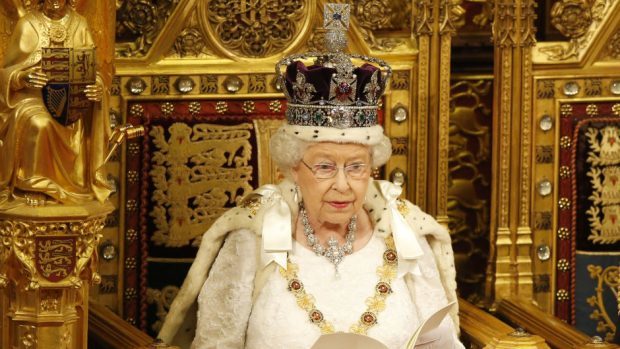The State Opening of Parliament will take place on Wednesday regardless of whether the Conservatives have agreed a deal with the Democratic Unionists.
Theresa May is “confident” there will be “sufficient support” in the Commons to pass the Queen’s Speech.
It was originally due to take place on Monday, but was put back two days following the inconclusive outcome of last week’s general election.
As discussions between the DUP and Tories continued yesterday, a senior Conservative source confirmed there was no requirement for a so-called “confidence and supply” arrangement to be in place beforehand.
He said: “Talks with the DUP have been progressing well and there is broad agreement on the principles of the Queen’s Speech.
“Both parties are committed to strengthening the union, combating terrorism, delivering Brexit and delivering prosperity across the whole country.
“However, while talks are ongoing, it’s important the government gets on with its business and we are confident there will be sufficient support across the House for passing the Queen’s Speech.”
The monarch is expected to attend Royal Ascot after delivering it.
There had been speculation she would miss a day of the annual event, but she is due to do both.
Meanwhile, formal Brexit negotiations will get underway as planned on Monday despite the delayed state opening.
Brexit Secretary David Davis will travel to Brussels for talks with EU chief negotiator Michel Barnier.
Former Scottish Secretary Alistair Carmichael said the Conservatives could not go from “weak and wobbly to business as usual in three days”.
The Liberal Democrat northern isles MP asked: “If the government cannot even secure a deal with the DUP, how on earth can they get a deal with the EU?”
He said Mrs May must immediately create a cross-party joint cabinet committee to negotiate the UK’s exit.
“It is the only way to unite the country and strengthen our bargaining power with the EU,” he added.
The Scottish and Welsh governments have also been vocal, calling for a clear agenda that would allow devolved administrations to consider relevant issues arising from the negotiations, such as the replacement of EU funding schemes like the Common Agricultural Policy.
In a letter to Mr Davis, they said it was vital agreement was reached on how the devolved administrations would be represented at the talks.
